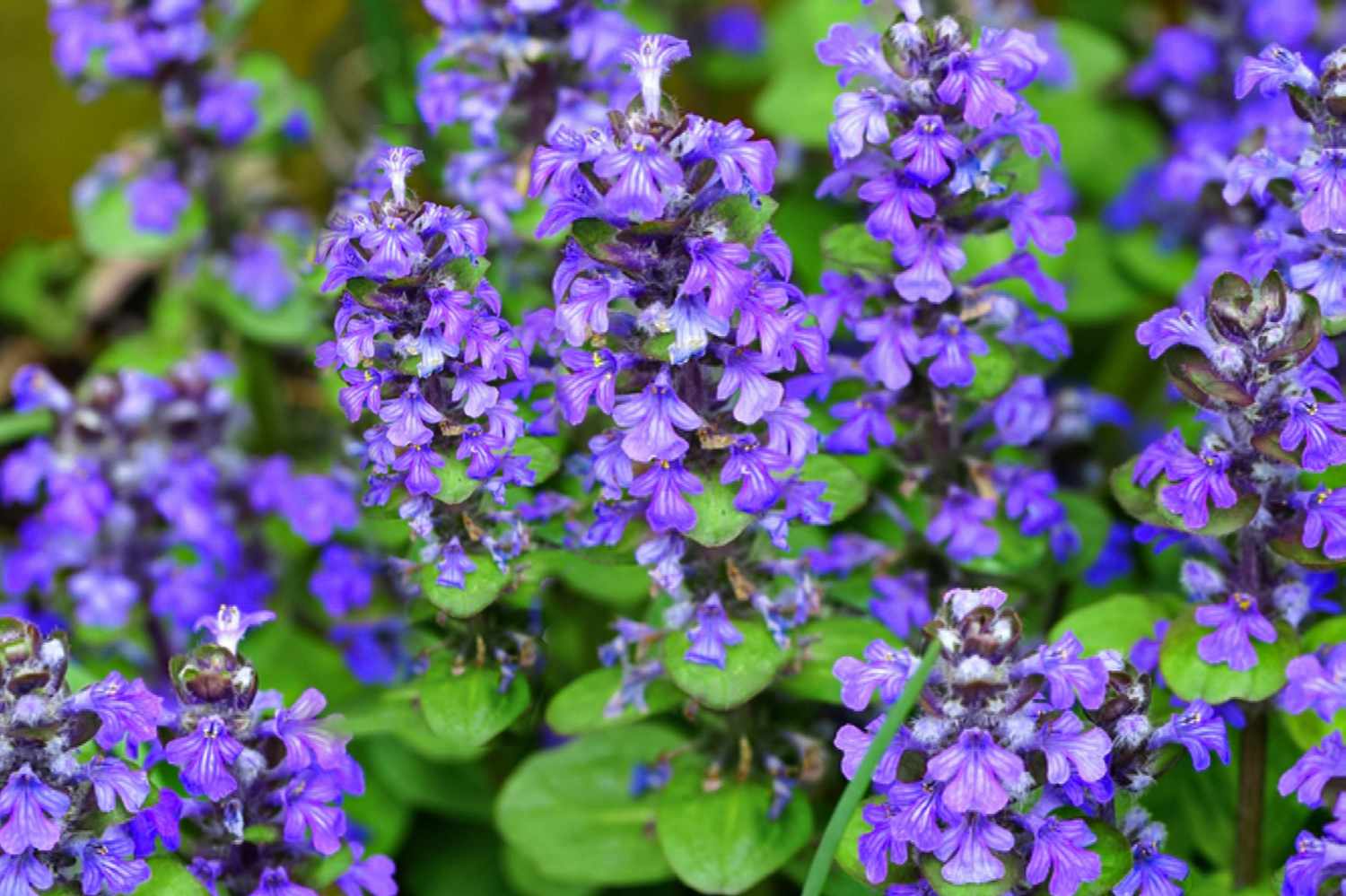
Ajuga, also known as bugleweed, is a versatile and fascinating plant that often goes unnoticed in our gardens. While it may not be as well-known as other plants, it certainly deserves our attention. Ajuga not only adds color and texture to our landscapes, but it also offers a range of surprising benefits and characteristics that many people are not aware of.
In this article, we will explore nine surprising facts about Ajuga that will undoubtedly pique your interest. From its historical uses to its medicinal properties, Ajuga has a lot more to offer than meets the eye. So, let’s dive into the world of Ajuga and discover why this humble plant deserves a place in our gardens.
Key Takeaways:
- Ajuga, also known as Bugleweed, comes in a variety of vibrant colors, making it a stunning addition to any garden or landscape. Its beauty attracts pollinators and beneficial insects, contributing to a healthy ecosystem.
- Ajuga is not only beautiful but also offers surprising benefits. It has medicinal properties, is deer-resistant, and can thrive in various growing conditions. It’s easy to propagate, making it a versatile and valuable plant for any garden.
Ajuga comes in a variety of colors.
One of the most striking features of Ajuga is its wide range of colors. From deep purples and blues to vibrant pinks and whites, these stunning hues can instantly transform any garden or landscape.
Ajuga has medicinal properties.
Did you know that Ajuga has been used for centuries in traditional medicine? It is known for its anti-inflammatory and antiseptic properties, making it a valuable herb for treating wounds, respiratory conditions, and even gastrointestinal issues.
Ajuga is a ground cover plant.
If you’re looking for a low-maintenance plant to fill in bare areas in your garden, Ajuga is the perfect choice. Its dense foliage spreads quickly, creating a lush carpet-like effect and choking out weeds.
Ajuga is a pollinator magnet.
Ajuga’s vibrant flowers are irresistible to bees, butterflies, and other pollinators. By planting Ajuga in your garden, you’ll not only enjoy its beauty but also contribute to the vital task of pollination.
Ajuga is deer-resistant.
Deer can be a nuisance in many gardens, but Ajuga is one plant that they tend to steer clear of. Its strong scent and dense foliage act as a deterrent, making it an excellent choice for landscapes plagued by deer browsing.
Ajuga can thrive in various growing conditions.
Whether your garden gets full sun or partial shade, Ajuga can adapt and thrive. It is a hardy plant that can withstand a wide range of conditions, from moist to well-drained soil.
Ajuga can be used for erosion control.
If you have sloping areas in your garden that are prone to erosion, Ajuga can be a valuable ally. Its thick roots help stabilize the soil, preventing erosion and creating a beautiful ground cover.
Ajuga attracts beneficial insects.
Ajuga’s flowers not only attract pollinators but also beneficial insects like ladybugs and lacewings, which help control garden pests. By incorporating Ajuga into your garden, you’ll be promoting a healthy ecosystem.
Ajuga is easy to propagate.
Once you have Ajuga in your garden, you’ll find that it’s easy to propagate. Simply by dividing the plant and replanting the sections, you can effortlessly expand your Ajuga collection or share it with others.
There you have it – 9 surprising facts about Ajuga! This versatile and beautiful plant is not only a feast for the eyes but also offers numerous benefits for your garden and overall well-being. So why not consider adding Ajuga to your landscape and enjoy its stunning colors and surprising qualities?
Conclusion
Ajuga is a fascinating plant with a rich history and a multitude of surprising facts. From its medicinal properties to its ability to attract pollinators, Ajuga is truly a versatile and unique addition to any garden or landscape. Whether you’re a seasoned gardener or just starting out, consider adding Ajuga to your plant collection and explore the beauty and benefits it has to offer.
FAQs
Q: What is Ajuga?
Ajuga is a perennial herbaceous plant that belongs to the mint family, Lamiaceae. It is commonly known as bugleweed and is native to Europe, Asia, and Africa.
Q: Can Ajuga be grown in containers?
Absolutely! Ajuga is a great plant for container gardening. It thrives in well-draining soil and can add a splash of color and texture to any container or hanging basket.
Q: How do I care for Ajuga?
Ajuga is a low-maintenance plant that requires minimal care. It prefers partial shade to full sun and well-draining soil. Regular watering and occasional fertilization will help keep Ajuga healthy and thriving.
Q: Are there different varieties of Ajuga?
Yes, there are several different varieties of Ajuga available, each with its own unique characteristics. Some popular varieties include Ajuga reptans ‘Chocolate Chip,’ Ajuga reptans ‘Burgundy Glow,’ and Ajuga reptans ‘Black Scallop.
Q: Can Ajuga be used for medicinal purposes?
Ajuga has a long history of being used medicinally. It contains compounds that have anti-inflammatory and antiseptic properties. However, it is important to consult with a healthcare professional before using Ajuga for any medicinal purposes.
Q: How does Ajuga attract pollinators?
Ajuga produces vibrant flowers that are highly attractive to bees, butterflies, and other pollinators. These flowers provide a valuable source of nectar and pollen, making Ajuga a valuable addition to any pollinator garden.
Q: Can Ajuga be used as a groundcover?
Absolutely! Ajuga is an excellent choice for use as a groundcover. Its low-growing habit and dense foliage make it perfect for suppressing weeds and adding visual interest to large areas of the landscape.
Q: Is Ajuga invasive?
While Ajuga can spread quickly and form dense colonies, it is typically not considered invasive. However, it is always a good idea to keep an eye on its growth and take steps to prevent it from spreading into unwanted areas.
Q: Can Ajuga be propagated?
Ajuga can be easily propagated through division or by taking stem cuttings. Division is best done in spring or fall, while stem cuttings can be taken during the growing season. Both methods are effective and will help you create more Ajuga plants for your garden.
Was this page helpful?
Our commitment to delivering trustworthy and engaging content is at the heart of what we do. Each fact on our site is contributed by real users like you, bringing a wealth of diverse insights and information. To ensure the highest standards of accuracy and reliability, our dedicated editors meticulously review each submission. This process guarantees that the facts we share are not only fascinating but also credible. Trust in our commitment to quality and authenticity as you explore and learn with us.


